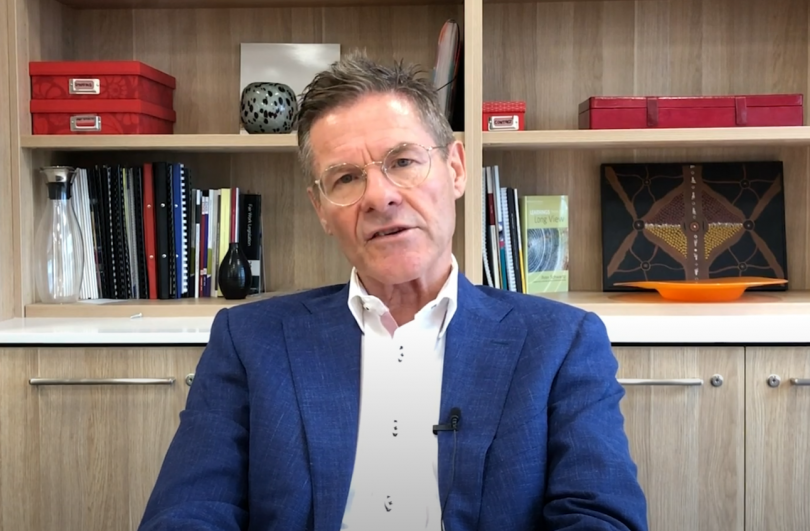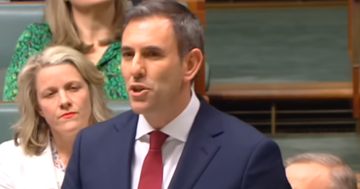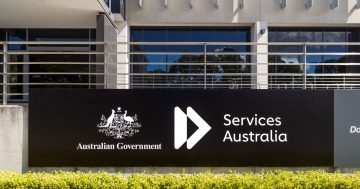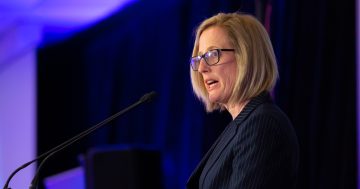
APS Commissioner Peter Woolcott. The APS pay rise in the next year will be based on the Wage Price Index. Photo: File.
Most Commonwealth public servants will receive a maximum pay rise of 1.9 per cent over the coming year based on the latest Wage Price Index, but their union says the Federal Government’s new policy of tying public sector pay to the private sector will leave staff in the dark when negotiating and suppress wages.
The Australian Public Service Commission has issued a circular to Commonwealth entities advising them of the WPI figure and how it should be applied to pay agreements between 1 September 2021 and 31 August 2022.
This will be the first pay increase under the new policy and will be a guide to how it will work in the future.
The circular applies to agencies with pay deals approved under the 2020 Public Sector Workplace Relations Policy that scrapped the 2 per cent wages cap for Commonwealth public servants in exchange for linking new rises to the private sector figure.
My Public Sector
Pay deals approved under earlier government policies will continue to operate under their existing arrangements.
The APSC says some deals may include a cap on pay increases at a level below the WPI figure, and that must apply even if the WPI figure is higher.
It says all SES and equivalent employees are covered by the new policy and the WPI figure.
Assistant Minister to the Prime Minister and Cabinet Ben Morton, when announcing the new wages policy last November, said the new policy ensured that Commonwealth public sector wage rises could no longer exceed wage rises in the private sector, but would allow them to follow private sector wage growth when it eventually exceeds 2 per cent.
The latest Remuneration Report shows APS wage growth at a record low, with the median wage rising only 0.8 per cent in the 2020 financial year, partly attributable to the pandemic pay freeze.
The Commonwealth and Public Sector Union says staff will now go into new enterprise agreement negotiations not knowing what the next pay figure will be.
“Pay increases will be unknown at the time you vote on them. The new wage cap sees wage rises calculated at a later date. Employees will be required to vote on an agreement that leaves future pay rates unknown,” the CPSU says.
Under the new Bargaining Policy, it says that pay cannot be genuinely negotiated by unions, workers and agencies, but will be dictated by the government.

CPSU National Secretary Melissa Donnelly says the pay freeze and WPI cap has seen real wages go backwards. Photo: Supplied.
CPSU National Secretary Melissa Donnelly said the implications of this decision will be felt for years to come.
“CPSU members having been working and delivering for our community through three waves of COVID-19, bushfires, floods and droughts,” she said.
“The pay freeze and WPI cap have seen real wages go backwards.
“At a time when the government should be helping workers spend in their local communities, it is effectively cutting wages and the pay rises on offer in the public sector. “
Ms Donnelly said the Morrison Government’s approach to bargaining was fundamentally broken.
“The government is asking workers to sign up to unknown deals, with no scope for improved conditions. It is a farcical situation you would never see in the private sector,” she said.
Ms Donnelly said it was contributing to staff dissatisfaction and the hollowing out of service delivery.
She said that the public sector had also given up its role leading employment conditions and providing innovative arrangements.
“Rather than being a model employer and driving broader economic growth by improving public sector workers’ wages, this government has chosen to lock APS employees into a race to the bottom on wages with the private sector.”



















